Visas For Company Personnel With Specialized Knowledge
Portions of the content on this page are available as public information on the USCIS website.
Criteria for Eligibility
The L-1B visa program allows an overseas company to transfer an employee with “specialized knowledge” that is of special importance to the company to work in the U.S. The L-1B visa can be used by an overseas company to transfer an employee to the U.S. to start a new U.S. company, to acquire and operate an existing one, or to work at an already-existing office the foreign company has operating in the U.S. The L-1B visa is initially granted for one or three years and can be extended up to five years total.
It is important to understand what “specialized knowledge” means for this visa category. According to U.S. immigration regulation 8 CFR 214.2(l)(1)(ii)(D)), “specialized knowledge” is defined as:
…either special knowledge possessed by an individual of the [business]’s product, service, research, equipment, techniques, management, or other interests and its application in international markets, or an advanced level of knowledge or expertise in the organization’s processes and procedures
In order to obtain L-1B visa approval, applicants must provide evidence of the qualifying business operations and relationship of the overseas company, U.S. company, and the executive/manager:
- Evidence that the overseas company has been in business for over a year and has a qualifying corporate relationship with the U.S. business;
- Evidence that the L-1B beneficiary has been employed with the overseas company for at least 1 continuous year out of the past 3 years and will be employed in a similar role in the U.S.; and
- Note that if the U.S. company is a new business, then evidence must be submitted to show that the company has secured sufficient premises and financing to begin operations shortly after filing, including evidence that it has either leased or owns sufficient space to begin business.
Application Process
Applicants will first need to file an I-129 petition to request L-1B status with USCIS. Second, once the L-1B is approved, the foreign national can complete the L-1B process either in the U.S. or overseas.
If the foreign national(s) are already inside the U.S. in another nonimmigrant status, they can file their L-1B petition as a change of status petition. This means that upon approval of the L-1B petition, the foreign national(s) will automatically be in L-1B status.
If the foreign national(s) are outside of the U.S., they will need to apply for a L-1B visa in their passport before they can enter the U.S. to work in L-1B status. To apply for the L-1B visa, the foreign national will need to complete the U.S. Department of State’s online visa application—DS-160, pay the visa fee, and schedule the visa appointment with a U.S. Embassy or Consulate abroad. If the visa appointment is successful, the foreign national will receive the L-1B visa in their passport. They will be able to enter the United States using the L-1B visa in their passport and the I-797 Notice of Approval from USCIS.
Validity Period
| Eligibility Category | Initial Period | Extensions of Stay | Maximum Period of Stay |
| New Business (Startup) | One year | Up to Two-year increments | 5 years |
| Existing Business (already operating over a year) | Three years | Up to Two-year increments | 5 years |
Family of Visa Holder
Dependents of L-1B visa holders (spouse and unmarried children under the age of 21) can come to the U.S. as L-2 visa holders. Spouses are eligible for work authorization and children are able to attend school. The L-2 visa is valid for as long as the L-1B visa is valid.
We Represent Clients Nationwide And Around The World
Contact Us To Learn More
Call David Hirson & Partners, LLP, in Costa Mesa, California at 949-441-4003 or our Seattle, Washington, office at 206-926-3973 or contact us by email to arrange a consultation with one of our immigration attorneys today.
Disclaimer: The use of the internet or this form for communication with the firm or any individual member of the firm does not establish an attorney-client relationship. Confidential or time-sensitive information should not be sent through this form.

